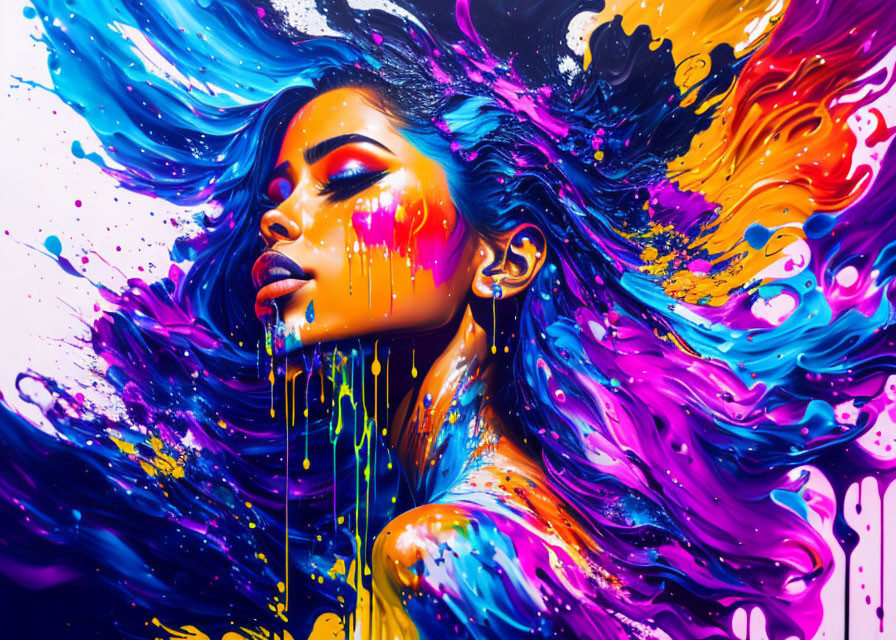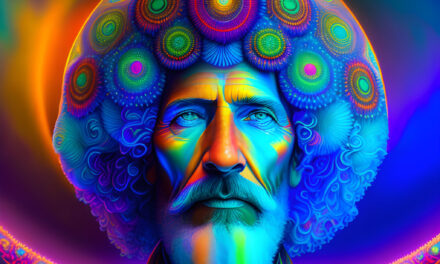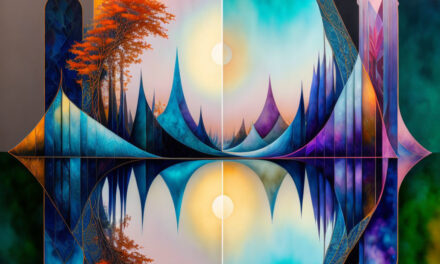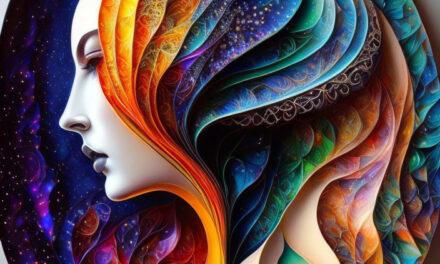When discussing the trauma of children separated from their mothers in previous text, I brought up the idea that perhaps in recent decades we have been experiencing a growing awakening of emotions and, as a result of it, also empathy. This thought arose from several online conversations I had with people about various family traumas and their causes. We wondered together whether it was possible that people in previous generations had much less awakened emotions than we do and, as a result, were not capable of the level of empathy we expect from them today… At first, it seemed absurd, but the more we talked about it and reflected on it, the more it all seemed to make sense. If this were true, it would be an interesting way to explain the various problems and disputes between generations… Let’s try to think about it a bit…
I remember how incomprehensible it seemed to me in the past that the so-called “Victorian era” could have existed in the second half of the 19th century. With its strict coldness, uptightness, and lack of emotions. I was also repeatedly amazed at how detached and cold the relationships between parents and children were in the past. At first, I only heard this from my grandmother who was born in 1912. She told me how her parents practically did not care about them at all and the children had to take care of each other, which she hated because she had to take care of her younger sister all her youth… I used to think that this was perhaps an exception. I always imagined that even in the past people were emotionally similar to my generation, but I gradually realized that this was probably not true.
I found more and more stories and sometimes even regression memories from people who took psychedelic trips. They were talking about how the attitude towards children was very cold at the end of the 19th and beginning of 20th centuries. It was expected that children would behave as uptight and rational as adults from a very young age, that they would simply be “little adults” with everything that comes with it, and above all, they would not misbehave, get dirty or be loud. So, it was expected that like adults, they would not show any emotions, or only the “permissible” ones. And when they didn’t take it seriously, when they showed “inappropriate emotional” or “disrespectful” behavior, various physical punishments were available to force them to comply…
I was also very surprised at what I learned about the First World War… This whole war was an incredibly gigantic display of incompetence, incapability, and heartlessness of commanders at all levels. Soldiers were just “cannon fodder” – „kanonen-futter“, the commanders tried out various completely senseless strategies and the absurd and utterly unnecessary trench war was fought ruthlessly and mercilessly for every inch of territory, so-called “victories” were totally meaningless and brought nothing to anyone… I also remember one contemporary documentary film sequence from the front. In the shots, a female nurse was trying to save a wounded soldier, and other men in uniforms were standing around, watching with interest and also great coldness the suffering of that wounded soldier. It almost looked like they were studying his emotions… At that time, it completely shocked me, and I didn’t understand why those people in the old film shots behaved so strangely… But if we were to admit the possibility that their emotions were only slightly awakened, then it makes more sense.
I know that there are also brighter memories from that time, such as the legendary football match between British and German soldiers at Christmas 1914, but that is an exception, overall the “Great War” was simply cold and heartless… And the Second World War? It was even more cruel, especially due to much more sophisticated weapons, but at the same time, memories of eyewitnesses are much more emotional. Likewise, it seems that the incompetence and incapability of commanders in this war had a slightly different form – because they were probably much more emotional than the previous generation in the previous war. At least that’s what I get from the memories of veterans of both wars…
The old society with less awakened emotions also apparently tended much more towards hierarchies of all kinds. And essentially, the whole idea of capitalism can only work in a society that has an overall lack of empathy towards its members. The capitalism of the second half of the 19th and the first half of the 20th century was very cruel and unempathetic. In contrast, hippies in the 60s wanted to create a much fairer society based mainly on community principles. But I don’t want to get into political disputes here. I just want to suggest that politics is closely related to the overall level of empathy in society and especially those who govern it…
If we want to “taste” the past, we can look at old films. For me, the so-called “films for the elderly” from the 1930s and 1940s were a remarkable experience. My parents, both born in 1944, watched them fascinated, but I really had a hard time understanding how strangely people behaved in those films. Emotionally, they seemed to me to be somewhere at the level of children in my generation, and the humor of that time seemed really strange to me… I remember once finding old magazines from 1930s in my aunt’s storage room and really not understanding what was so funny about the jokes I saw in them. Many of them seemed to me simply very cruel and even primitively egoistically mocking… On the other hand, I admired great Czech actors Voskovec and Werich for their beautiful and noble and gentel irony which they demonstrated already in 1930s… I have a feeling that great artists have always been those who “explored” the world of emotions for others to the point where ordinary people were not brave enough to go…
But let’s get back to the movies. Today, with the benefit of hindsight, I think that communist utopistic films of the 1960s, as well as the hippie flower revolution, were actually both about awakening some new, “spiritual” and “soaring” feelings. The Communists transformed them into “building an advanced society,” the hippies into the desire to create a much better community… I remember pondering over the pages of books and documentaries about the hippie movement, wondering why psychedelics and spirituality had so strongly captivated them. Gradually, I came to the feeling that their emotions were probably much more awakened, and they very much wanted to express and experience them freely. In contrast, in one documentary film about the hippie era, I saw an older “successful American” man who was shocked by the behavior of young people and really didn’t understand what they want. The man was respectable, polished, and even uptight, showing only a very limited range of emotions…
Speaking of spirituality, when I was reading spiritual books from 1930s in the 1990s, I was quite shocked at how strangely materialistic and emotionally detached people were at the beginning of the century, compared to my generation. The spirituality of my generation became much more emotional, and some people even lamented that they could no longer meditate as well as before. That old guru from the previous generation was much “better” at meditation… Who knows, maybe he simply didn’t have as awakened emotions, and so it was easier for him to be “holy”…
The transformation of emotional experience can be clearly seen in the films of the 60s and 70s. There was suddenly new strong film music that led a person’s emotions, and films literally indulged in long scenes where the viewer could slowly and deeply enjoy their feelings. The most vivid example for me is the film “Once Upon a Time in the West” by Italian director Sergio Leone with amazing music by Ennio Morricone from 1968. When I first saw it, I watched it in amazement and enjoyed it immensely. But today, it seems very slow to me, as well as Tarkovsky’s Solaris from 1972. The long emotional scenes remind me of the moods of my childhood, when emotions were seemingly slow like that, but I almost can’t watch these films today – except perhaps for the nostalgia of how emotionally different the world was then compared to now…
I say “different”, not “better”. When I think about it now, the generation of my parrents expressed a rather limited range of emotions. And it was even more pronounced with my grandmother. Many adults around me mainly showed “self-satisfied egotistical superiority” in the sense of “I figured it out”, then often something like “malicious mockery” when someone failed, and then fear, reproach, anger, and self-pity. Love was occasionally talked about, but it was somehow beyond most people. Something like “love is when the prince rescued Sleeping Beauty” etc. The love stories in films at that time seemed a bit like “alcohol-induced intoxication” – they brought you to the edge of something beautiful and great, but did not go further. Because no one talked about what comes “afterward” in public. Now I think it wasn’t talked about because almost no one knew what to do with “afterward”…
And speaking of love – hippies in the 60s discovered “free love”, but it didn’t really work back then. Or rather, it worked mainly in the expanded consciousness under the influence of psychedelics or empathogens, and mainly in smaller communities. People were not emotionally capable of it in normal consciousness and in normal society. But today, more than 50 years later, the situation is different. A lot is being talked about so-called “polyamory”, and more people now live actively this way. Of course, many voices of the older generation speak out against it, about the “moral decline” of humanity, and the need to stick to “traditional values”. But when I think about that old “morality” and “values”, I have a feeling that it could work precisely because people’s emotions were less awakened in those times. Because the old “morality” essentially meant only a monogamous union for life, usually arranged by parents for reasons of property, social status, prestige, etc. Such customs still exist in India, for example, but the young generation now really rebels against them. Why? Probably because their emotions are already very awakened and they perceive that they do not want to submit to a tradition that did not count on any emotions. Once again it suggests that people were probably emotionally much colder in the past…
But let’s get back to polyamory. During online discussions, I heard from several people talking about their experiences with this type of relationship. And even our twenty-year-old daughter talks about it as a way she imagines her future life. That’s why I decided to explore this topic more. When I talked to people from my generation about polyamory, I usually heard something like “she’ll grow out of it” or “she’ll sober up from it” and so on. The more honest ones admitted that they couldn’t imagine having an open, honest, and loving relationship with multiple partners at once. Because that’s what polyamory is about. It’s not about cheating or casual sex, it’s really about the desire to have multiple relationships at once and not hiding them or being ashamed of them, but rather experiencing them together…
I had to dive into the expanded consciousness to understand more about what’s really going on here. And what did I find? More expanded emotions… The experience completely overwhelmed me. I thought I had rich emotions, and suddenly I was able to experience the inner world of today’s young generation and I couldn’t believe it. I had never experienced so many deep and different emotions – only sometimes during psychedelic trips… I truly felt inside that these awakened emotions cannot be “fulfilled” or “satisfied” by only one partner. It’s just not possible. When I talked to my daughter about it, it was clear that she was really glad that I found out that she has significantly more emotions than her parents. And she also told me that she wouldn’t want to project all those emotions onto just one person because it would “burn them out” completely… And that’s exactly what polyamorous people talk about – I have so many emotions and so many different ones that they need to be experienced and shared with several people…
By the way, during the online sharing, I was also able to talk to women from my generation who were much more emotionally awakened from childhood than their peers, and so they really struggled in their relationships. With the breadth of their emotions, they couldn’t find anyone who was able to understand and share their emotions. There was a very illustrative story of unrequited love when the person projected all of her emotional expectations and desires into one man whom she believed was the “dream ideal one,” but he was so afraid of the intensity of her emotions and expectations that he refused to meet her and only sent a message through a friend that he couldn’t give her what she was looking for… It seems that today’s young generation, “subconsciously taught” by their parents’ experiences, no longer even attempts something like that and naturally leans towards multiple relationships because they already see around them how many times monogamous relationships brutally fail in the flood of emotions that are awakening in people today…
In my opinion, the fact that today’s young generation has much more complex emotions is clearly visible in today’s movies and video games. It’s a whole different ballgame than it used to be… In movies, emotions are followed by emotions, the music is incredibly sophisticated, and a lot is done with image thanks to computer effects. For example, in the bonus features of “The Lord of the Rings” trilogy, the creators showed that all shots were digitally manipulated to increase their emotional impact. The landscape was painted over or stripped down, depending on what the scene required, the actors’ eyes were highlighted, and shots of elves were illuminated by “magical” light that seemed to come directly from them, and so on. The result is stunning, those films are a perfect emotional harmony in every respect… And the same goes for video games – they’re all about strong emotions. They’re no longer “smileys” slowly devouring dots in a maze, or flat Super Mario jumping on a flat screen among flat monsters. And even “mindless shooters” aren’t enough anymore… Last fall, there was a serious scandal in the news about a long-awaited game for consoles. Players were bitterly disappointed that the game was just a “mindless shooting” and the company didn’t fulfill its promises regarding a strong story and possibilities for mutual interaction in the virtual world. Players, it seems, were mainly looking forward to new and varied emotional experiences.
So, if this increasing awakening of emotions is really happening, it would also better explain all the events around psychedelics and empathogens in the last 80 or so years. Young people were and still are captivated by these substances, and many appreciate their power and breadth of emotions that they experience because of them. President Nixon’s generation understandably became very frightened of this in the 60s, because their inner world was about cold patriotism, dedication, obedience to authority, and “war as an integral part of the American way of life”… And that people were dying in Vietnam? They didn’t care too much, because their emotions were still very suppressed, so they didn’t have to deal with empathy… And today’s young people really want to enjoy intense emotions thanks to psychedelics and empathogens. What do they see in it – taking something and then dancing for hours? Well, what else but emotions and more emotions… The more and stronger, the better…
It was probably similar with the conflict between classical analytic reasoning psychotherapy and various experiential therapies, especially those supported by psychedelics, empathogens, or holotropic breathwork. The older generation with more subdued emotions did not rush into any kind of experience. And if they accidentally started to deeply experience something, they probably fell into panic from the world of emotions that was foreign and incomprehensible to them. The exploration of emotions was still shrouded in a certain dark veil at the end of the 19th and beginning of 20th centuries. I remember reading about “occult” practices of that time, especially about the infamous Aleister Crowley, and I was quite surprised by what those people were doing back then. But if we look at it as an exploration of awakening emotions, it makes much more sense…
In contrast, today’s generation of people with much more awakened emotions naturally tends towards experiential therapies and dares to venture into deeper dives into their inner selves… With exaggeration, I imagined how Sigmund Freud, Carl Gustav Jung, Aleister Crowley, and some 19th-century occultists would feel if they could attend a large holotropic breathwork workshop that my wife and I attended in Prague in September 2017… A dark room filled with more than 250 people, the space is flooded with very loud and strongly emotional music, which itself draws people “into the process”, and someone is crying, vomiting, writhing, dancing, laughing wildly… Someone from those visitors from other times would probably run away, someone might join it…




